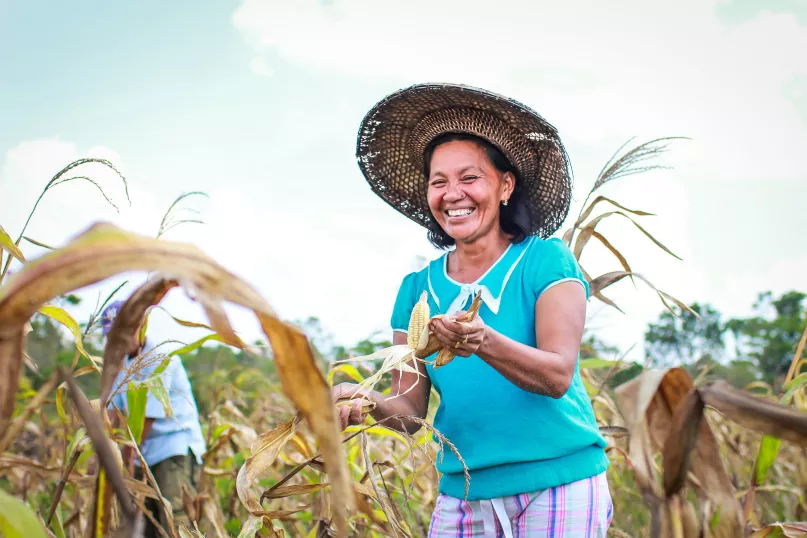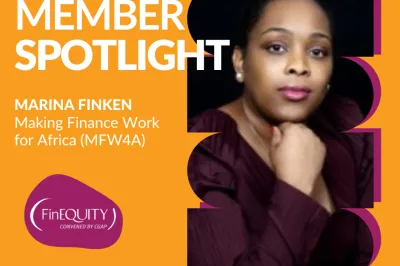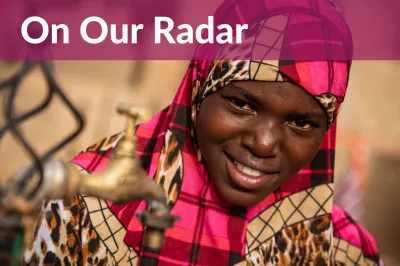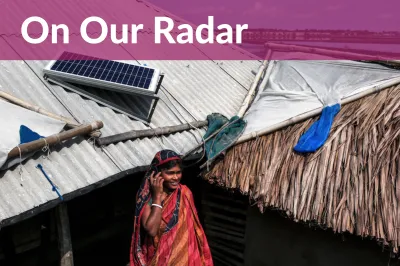Dgroups Dialogue Recap

Last month, FinEquity organized an online discussion about why psychosocial sources of resilience like agency, decision-making, confidence and aspirations are important for women who take part in women’s groups (like VSLAs or savings groups) and livelihood and/or financial inclusion initiatives. We wanted to explore a few aspects of this topic with our community. Firstly, whether members have considered psychosocial factors when designing or implementing women’s groups or other financial inclusion initiatives and what they have learned. Second, we wanted to understand the existing gaps in evidence needed to inform programming and investments to support these factors. Lastly, we wanted to ask if there were opportunities to put some of these learning questions to the test.
During the discussion, we heard from researchers and implementers about what they were learning and how those findings begin to untangle how psychosocial factors interact with financial inclusion programs, and lessons we can apply to designing and evaluating future programs. For those who could not join us on Dgroups for the virtual discussion, we’ve recapped some of the highlights shared, along with some of the questions posed to the FinEquity community that we can continue to explore together. Lastly, we include a list of relevant resources contributed by community members.
Mercy Corps shared an evidence review that found that Self Help Groups and women’s groups more broadly can have substantial consequences for a range of women’s psychosocial factors (in combination with economic benefits facilitated through participation in the groups). Looking forward, they are designing a program and mixed methods study around psychosocial factors (i.e., social solidarity/ connectedness, aspiration, women’s empowerment) in South Sudan, drawing on literature on community-based approaches to microfinance and poverty graduation approaches.
Questions to explore:
- If you have intentionally programmed around psychosocial factors through women’s groups, are there any lessons you can share?
- For evaluators, how are you contending with all the challenges related to causal inferences (self-selection bias, balancing randomization design with self-led nature of these groups etc.)?
ideas42 shared a discussion paper with PEI on low-cost, light-touch tweaks rooted in behavioral science that can be applied to economic inclusion programs in order to improve outcomes for women by reducing barriers around identity and agency to participation in programs. They also shared a brief of a labor market program in Liberia discussing strategies for program design to challenge perceptions around women participating in traditionally male-dominated fields.
Questions to explore:
- What standard / how rigorous must evidence be for program designers to incorporate such interventions into their programs?
Is it necessary that evidence is derived from a trial in the specific context of that program to inform scale, or is it sufficient if an intervention has proven effective in a similar context (perhaps in a different country)?
Village Enterprise shared a study of their graduation program in Uganda showing increased decision-making within the household and improved standing within the community led to a greater sense of hope and overall happiness for women entrepreneurs. They are also planning to measure women’s agency in an upcoming randomized control trial of the DREAMS (Delivering Resilient Enterprises and Market Systems) for Refugees project.
Questions to explore:
- What are others doing to measure intra-household dynamics?
UC Davis shared several findings from studies of the BOMA project’s Rural Entrepreneur Access Project (REAP) in Kenya. In addition to the graduation program’s positive impacts on assets, income and savings, the research highlighted the significant role that psychological assets (i.e., skills, self-confidence, aspirations and mental health) play in complementing economic interventions and improving outcomes for women. The baseline mental health of program participants is also a crucial factor. Findings showed that women with severe depressive symptoms did not have the same financial benefits. This resulted in a call to action to rethink program design, including the addition of a suggested screening for mental health issues and considering treatment options before offering women the additional opportunity (and stress) of financial assets.
Lastly, below is a list of resources shared during this and previous discussions on the topic.
Relevant Resources
- Building Resilience Through Women's Groups: A Discussion of Why Psychosocial Factors are Critical for Their Success Cabot Venton, C., Prillaman, SA., & Kim, J. Sharetrust, Mercy Corps, REAL (2021) - state of knowledge on the linkages between psychosocial factors and resilience through the lens of Self Help Groups and women’s groups more broadly.
- Big Financial Impacts for a Poverty Graduation Program for Women in Northern Kenya and Evidence Insight: Clearing Pathways to Prosperity with a Livelihood Building Program in Kenya UC Davis Impact Evaluation of BOMA project’s Rural Entrepreneur Access Project (REAP) (2022), a graduation program; impacts on economic indicators and importance of psychological factors.
- Behavioral Science and Economic Inclusion ideas42 and World Bank Group’s Partnership for Economic Inclusion (PEI) (2022) - how behavioral science can inform better program design and counter social norms (perceptions of male-dominated sectors, confidence to access training etc)
- Behavioral Insights For Women’s Sector Choice in Liberia’s Youth Opportunities Project ideas42
- The Impact of Variations of Ultra-Poor Graduation Programming in Uganda (2020) Village Enterprise/ IPA Impact Assessment showing increased decision-making within the household and improved standing within the community led to a greater sense of hope and overall happiness for women entrepreneurs.
- Tackling Psychosocial and Capital Constraints to Alleviate Poverty Nature (2022) RCT of a multi-faceted programme for women implemented by the Government of Niger showing psychosocial interventions were the most cost-effective.
- Pathways out of Poverty: Tackling Psychosocial and Capital Constraints with A Multi-Faceted Social Protection Program in Niger (Collaborative research effort) - RCT of a multifaceted economic intervention delivered to (women) beneficiaries of national cash transfer programs in Niger, highlighting the value of addressing psychosocial constraints.
- A New Kind of Drought Insurance for Women in Kenya’s Arid Rangelands and Making Index-based Insurance Fully Available for Women UC Davis/BOMA (2022) efforts to make asset insurance more fully available to women through Takaful Insurance Africa.
- Building Resilience Through Women's Groups: A Discussion of Why Psychosocial Factors are Critical for Their Success Recording & Recap (2021) event, co-hosted by FinEquity and the Resilience, Evaluation, Analysis and Learning (REAL) Associate Award on why psychosocial factors matter for women’s groups.
- Understanding How the Psychosocial Elements of Women's Groups Contribute to Building Resilience FinEquity Blog, Megan Gash (2021)
- Women's Empowerment and Savings Groups: What Do We Know? SEEP Network (2018)- evidence related to SGs and WEE; guidance for the design and results measurement of women’s empowerment through SGs.
- Can Livelihood Interventions do More Than Build Economic Resilience In Crisis Contexts? FinEquity Blog, Mercy Corps blog (2022) experience in northeast Nigeria
- Role of Markets in Strengthening Social Resilience Capacities in Northeast Nigeria Krishnan, V. Mercy Corps. REAL (2021) - case study of how combinations of livelihood-support and economic collectives helped develop financial and social sources of resilience.
- Building Resilience through Financial Inclusion: A Review of Existing Evidence and Knowledge Gaps IPA (2019). Role financial products and services in helping low-income families prepare for and reduce risks, increase investment in the face of risk, and respond when a shock occurs
- Resilience in Action: Financial Inclusion REAL, Mercy Corps, Gash,M (2019) considering risk and resilience in financial service design; mechanisms to support financial systems resilience..
- The Graduation Model and Gender Empowerment research project in Malawi IPA/Concern Worldwide (2022)— graduation program Tiwoloke; role of HH dialogues influencing decision making and the perceptions of gender roles.
- Cognitive Behavioral Therapy and Economic Inclusion in Ghana (2022) study the impact of group-based cognitive behavioral therapy (CBT) on mental and perceived physical health, cognitive and socioemotional skills, and economic self-perceptions.


